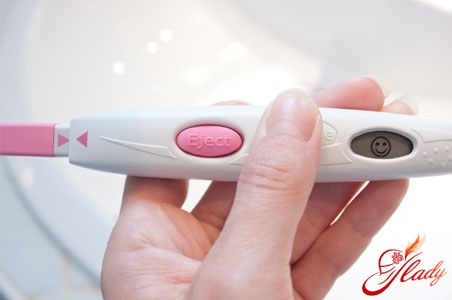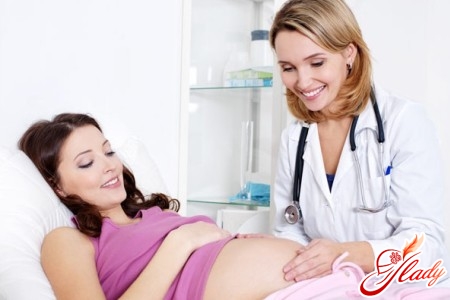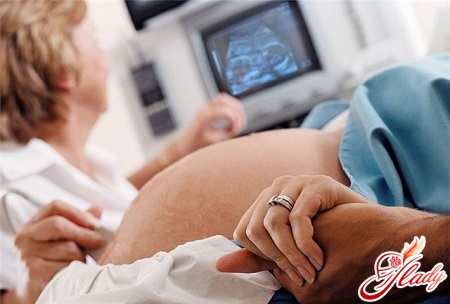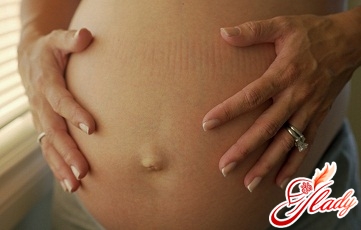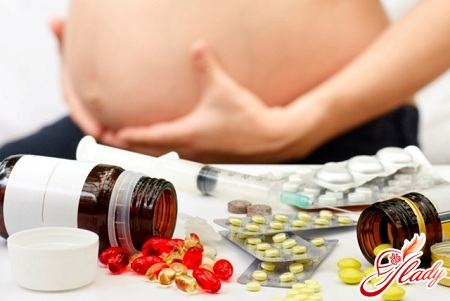 Over the course of life, humanity in some areasis developing, and in others it significantly lags behind its predecessors. The older generation still remembers the times when store shelves were empty, but the products that were sold there were strikingly different in quality from modern ones. Our grandparents ate modestly - vegetables and fruits were mainly grown in vegetable gardens, they had never heard of fast food, and butter and sausage were bought with coupons. And, despite this, people were healthier and stronger than the current generation. Modern youth have an incredibly wide choice of products: supermarkets offer a huge assortment, presenting several types of the same product at once: cheese, sweets, bread, potatoes, pasta, cereals, and so on. Take whatever you want; however, as sad as it may sound, the quality of modern nutrition is incredibly poor. Scientists have long been sounding the alarm about the low nutritional value of modern products and the huge amount of harmful modified substances contained in them. Today, vegetables, greens, fruits and meat contain almost no vital elements that are necessary for normal human development. Therefore, if you want to be healthy, you must take care of yourself. To do this, you should ensure that all essential vitamins and minerals enter your body from the outside. It is recommended to take special complexes after examination by a doctor, who will tell you what daily dose you need and how to properly take the entire course. As you know, vitamins play a special role in the lives of pregnant women. We think that many people understand why they are needed. Firstly, most of the nutrients are taken from the mother by her child. Secondly, during this period, some elements should enter the body of the expectant mother in increased quantities, since they are directly involved in the process of formation, as well as the development and bearing of the baby. Vitamin E is one of these. We will tell you below how to take it, what the daily norm is and what its deficiency is fraught with for pregnant women.
Over the course of life, humanity in some areasis developing, and in others it significantly lags behind its predecessors. The older generation still remembers the times when store shelves were empty, but the products that were sold there were strikingly different in quality from modern ones. Our grandparents ate modestly - vegetables and fruits were mainly grown in vegetable gardens, they had never heard of fast food, and butter and sausage were bought with coupons. And, despite this, people were healthier and stronger than the current generation. Modern youth have an incredibly wide choice of products: supermarkets offer a huge assortment, presenting several types of the same product at once: cheese, sweets, bread, potatoes, pasta, cereals, and so on. Take whatever you want; however, as sad as it may sound, the quality of modern nutrition is incredibly poor. Scientists have long been sounding the alarm about the low nutritional value of modern products and the huge amount of harmful modified substances contained in them. Today, vegetables, greens, fruits and meat contain almost no vital elements that are necessary for normal human development. Therefore, if you want to be healthy, you must take care of yourself. To do this, you should ensure that all essential vitamins and minerals enter your body from the outside. It is recommended to take special complexes after examination by a doctor, who will tell you what daily dose you need and how to properly take the entire course. As you know, vitamins play a special role in the lives of pregnant women. We think that many people understand why they are needed. Firstly, most of the nutrients are taken from the mother by her child. Secondly, during this period, some elements should enter the body of the expectant mother in increased quantities, since they are directly involved in the process of formation, as well as the development and bearing of the baby. Vitamin E is one of these. We will tell you below how to take it, what the daily norm is and what its deficiency is fraught with for pregnant women.
Vitamins - the guarantee of health
All expectant mothers know that vitamins are essentialpregnancy are simply necessary. And they go to the pharmacy, buy some mineral complex there, and when choosing, they are very often guided by advertising or advice from "seasoned" friends or relatives. And they calm down, believing that the problem is solved. However, in reality this is not so. Let's first try to figure out why a person needs vitamins at all. The answer is extremely simple: to maintain all life processes in the body. It is vitamins that keep under control thousands and thousands of biochemical processes that are constantly occurring in the body. Moreover, if we are talking about a pregnant woman, this is true not only for the expectant mother, but also for her child. After all, the body of the developing fetus has to be content with only those vitamins that the mother's body provides it. Often, a woman, although she drinks mineral complexes, still does not receive the necessary vitamins in sufficient quantities. And only because there are few of them in the composition of the drugs or none at all. A woman could get them very simply - by adjusting her diet. In order to protect herself from such situations, the expectant mother should know what vitamins she needs for a successful pregnancy. The most important and necessary element for the health of the mother and her child, as experts note, is vitamin E, which is also called tocopherol. It not only protects against the development of cancer, and also prevents the occurrence of Alzheimer's syndrome, but also helps to bear the fetus. There is a certain norm of this element in the human body, and if for some reason it is not enough, then weakness may appear, and even worse - anemia. Therefore, it is very important for pregnant women to eat right and take additional vitamins.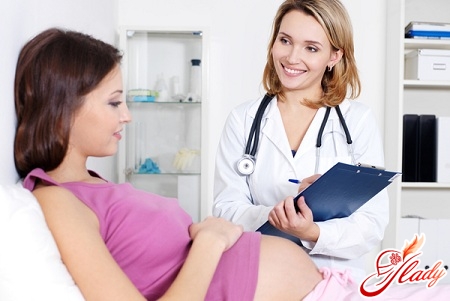
Vitamin E
Vitamin E is better known to the people as"the vitamin of youth". And it got this name quite rightly, because it is vitamin E that has the unique property of reliably protecting all cells of the body without exception from the very aggressive effects of harmful chemicals - free radicals. That is why vitamin E can have a positive effect on a huge number of different processes that occur in the body of both the mother and the fetus. And often these processes are extremely important: for example, vitamin E reliably protects pregnancy from its premature spontaneous termination, and prepares the lungs of the baby for independent breathing after birth. Due to the lifestyle of modern youth and the state of the environment, many pregnant women today experience menstrual irregularities in the early stages. This may be due to stress or health problems, diet and other factors are also of great importance. To eliminate these problems and prevent a possible miscarriage, doctors recommend taking vitamin E. However, self-medication is in no case worth it - this way you can only harm both yourself and your baby. After all, there is a certain dosage, which is strictly individual, so all questions should be discussed with the gynecologist who is observing you. Tocopherol helps to improve oxygen transport, and also prevents the formation of blood clots in the vessels, reduces cramps in the lower extremities, has a beneficial effect on the general condition of nails, hair and skin. It is considered the most "feminine" vitamin among all other elements, as it helps not only to restore the menstrual cycle, but also promotes the maturation of the infantile uterus, is also used for late onset of menstruation, treats ovarian dysfunction. Very often, vitamin E is prescribed to girls who cannot get pregnant for a long time, because it increases reproductive capacity and improves the functioning of the sex glands. Pregnant women simply need to take tocopherol, as it participates in the formation of the child's respiratory system, improves ovarian function, prevents spontaneous abortion, and also maintains normal hormonal levels. In its effect, this vitamin is very similar to the hormone progesterone. It also promotes the maturation of the placenta and regulates its work, prevents detachment, helps to keep blood vessels normal, etc. Tocopherol also takes part in the production of a hormone that ensures lactation. In a word, vitamin E is simply irreplaceable during pregnancy; we think now you understand why and why every woman should take it while pregnant.
Vitamin E in nature and why they should not be abused
Vitamin E is found in large quantities in mostvarious products: it is contained in wheat sprouts, soybeans, legumes, all types of unrefined vegetable oil (soybean, corn, sunflower and olive), dairy products, meat, vegetables, fish. Simply put, they are in absolutely all products - so great is its importance for the reproduction of all living organisms. But, even despite this, almost all doctors prefer to play it safe and prescribe vitamin E during pregnancy additionally. Despite all the positive aspects of tocopherol, it should also be taken into account that if its content in the body exceeds the norm, then this element can become dangerous. The fact is that this fat-soluble vitamin has one bad ability - to accumulate in adipose tissue. And this is undesirable for pregnant women, since during the period of bearing a child, a woman already gains extra pounds. In addition, vitamin E helps to increase muscle elasticity, which can have an extremely negative effect on future births. Some scientists also believe that this element can lead to other consequences that have not yet been studied. Therefore, if it is known that the norm of tocopherol is from 200 to 400 milligrams per day, then this indicator should not be exceeded!
Dosage of tocopherol for pregnant women
Daily intake of tocopherol for healthya person is approximately 20 milligrams. The dosage of drugs is indicated in such international units as IU. 0.67 milligrams of vitamin E corresponds to 1 IU or 1 milligram of tocopherol acetate. Some women may be indignant, because their doctor prescribed them to take 200 or 400 milligrams per day. However, do not panic, because the dose of this element is selected strictly individually, taking into account the course of pregnancy, the health of the woman, and so on. Under normal conditions and the absence of any problems, a safe dose is no more than 1000 milligrams of tocopherol per day. But in no case do not get carried away with self-medication - you can only harm yourself or your baby. Vitamin E is often not prescribed as an independent drug, but special multivitamin complexes are selected that contain the daily norm of this element. If you do not want to get tocopherol in the form of a medicine, be sure to review your daily diet. Eat as much cereals (oatmeal, buckwheat, rice), greens, fruits, meat, eggs, walnuts and other nuts as possible. In general, all those products that contain vitamin E. It should be noted that inorganic iron, when in contact with tocopherol, is destroyed completely or to a greater extent. Therefore, doctors do not recommend taking iron-containing drugs together with vitamin E. As for cooked foods that are rich in iron, they should be eaten only eight, or better twelve hours after the last intake of the drug.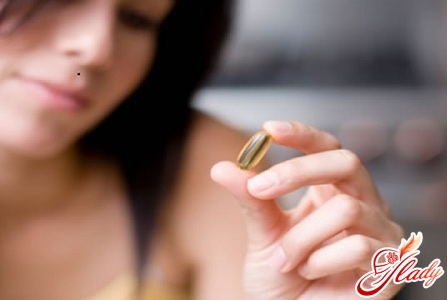
Summing up
From all of the above it becomes clear thatPregnancy and vitamins should always go hand in hand. And in no case should you treat this frivolously, believing that your body does not need any supplements. This article has already given you some idea of what a deficiency of a particular vitamin is fraught with. Therefore, be careful not to allow such a situation. However, you should also take vitamins very carefully and sensibly, without falling into unhealthy fanaticism. The first thing you need to do is carefully review your diet. Consult a nutritionist, and if you do not have one, with your attending gynecologist. Doctors will help you create a menu in the best way to meet all the needs of the body, both yours and your baby. So, in order for you and your child to be healthy, you need to consume vitamin E, getting it from food, or take a course of medications. However, remember that their dosage is strictly individual, so be sure to consult your doctor. Let us remind you once again about the positive properties of tocopherol:
- it prevents the development of anemia, oncological diseases, as well as Alzheimer's disease;
- helps restore the menstrual cycle, balance the hormonal background;
- prevents involuntary miscarriage;
- takes part in the formation of the child's respiratory system;
- Vitamin E helps to reduce the harmful effects of the environment, protects against the negative impact of the environment;
- increases the protective functions of the human body and helps to fight with various infections.
Therefore, it is necessary to obtain sufficient dataeveryone needs this element, especially pregnant women, in whose womb another life is growing. When going to see your doctor, be sure to discuss this issue with him. Let him tell you how to take tocopherol correctly, what is its daily dose for you. And we cannot fail to mention vitamin and mineral complexes. In no case should you buy them yourself, as often happens. Yes, vitamin E is extremely important during pregnancy, but do you really lack it? Yes, vitamin E is simply vital, but its excess can lead to thrombosis. Therefore, let your doctors determine your needs and prescribe vitamins that will meet these needs. We recommend reading:




